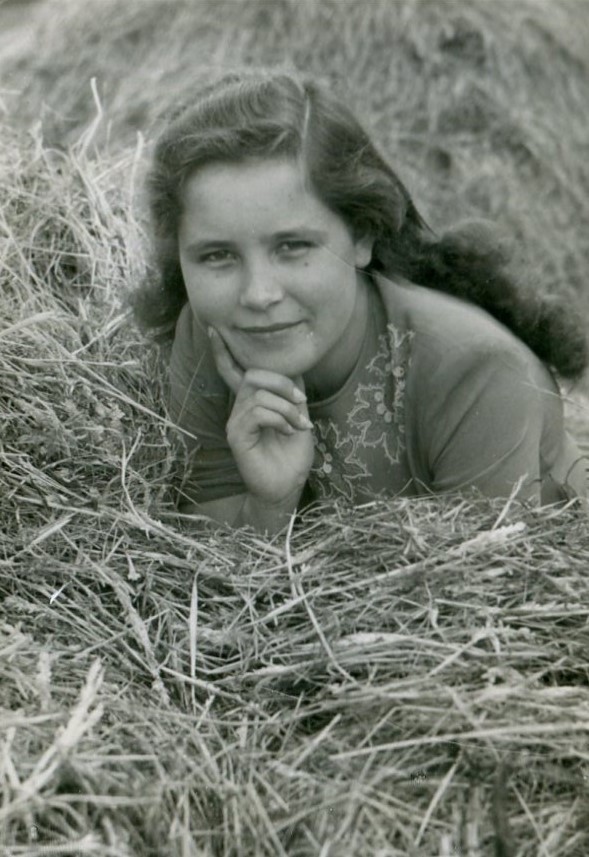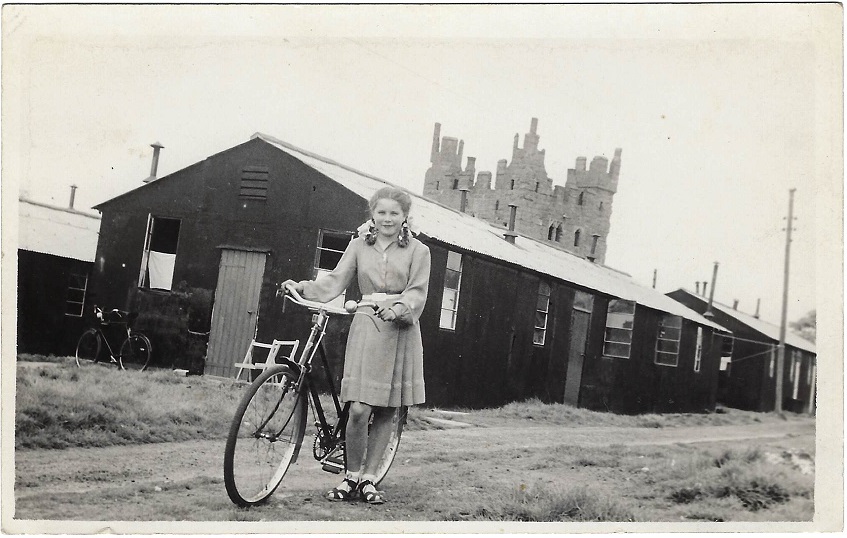On the 75th anniversary of Empire Windrush, author Jane Raca has kindly agreed to write this piece:
On 22 June 1948 the Empire Windrush, a ship that has become famous in British history, docked at Tilbury in England. On board were 66 Polish refugees, among them my mother-in-law, Janina Folta. I had known her for 25 years before I discovered the incredible story of how she found herself on the ship.

Janina had been born in Eastern Poland and lived an idyllic life on the family farm, with parents Józef and Ewa, sisters Maria and Mila, and brother Władek. Then in the winter of 1940, when she was just three, Russian soldiers had hammered on the door of every house in the village and given them half an hour to pack before leaving forever. They were put into cattle trucks and sent over 1,000 miles away to Arkhangelsk in northern Siberia. The family were among 1-2 million Poles who were deported in this way.
It took six weeks to get there, and many people died on the journey. When the Foltas arrived, they were allocated a one-roomed hut. Józef and Władek had to do hard labour in order to earn meagre rations; those who couldn’t work starved. The temperature was sub-zero for half the year, reaching -50°C in winter.
After two years they were released, but had to travel 3,000 miles overland to get out of the Soviet Union. They nearly died of starvation, eating dogs and tortoises to survive. Józef and Władek joined the Polish forces fighting under General Władysław Anders. Janina, her mother Ewa and sisters Maria and Mila, were given refuge in a civilian camp in Mexico. Other civilians were sent to camps as far flung as Kenya, India and New Zealand.
After the war, the Poles who had been deported from eastern Poland could not return to their homes, as Russia retained their land under the Yalta peace agreement. The British Government, recognising the contribution of Anders’ Army to the War and the nature of their predicament, passed the Polish Resettlement Act of 1947. The legislation allowed the troops to settle in the UK and to bring their families to join them. It was this which led to the Folta women travelling from Mexico to England on the Empire Windrush, to reunite with Władek and Józef.

The ship has been made famous by around 500 Caribbean passengers who were also on board. They had come to Britain to find work in response to an advertisement by the UK Government to fill a post-war labour shortage. They were among the first of many thousands that followed, ‘the Windrush Generation’, who came to England on ships between 1947 and 1971. They are now recognised as having contributed to British society in multiple ways but also to have suffered decades of racial discrimination. It is their story that has been marked in the UK every 22 June since 2018, officially ‘Windrush Day’.
Despite the fact that around 200,000 Poles also came to Britain on ships under the Polish Resettlement Act, their descendants do not see them as a Polish Windrush generation. Their reason for coming to England was not one they chose and their focus was on what they had lost. For Janina’s family the ship was certainly just a point in time, a part of a journey that would not lead back home, and so never really ended.
For more about this story go to www.windrushpoles.co.uk

©Jane Raca 27 June 2023
Jane Raca MBE, author of ‘Standing up for James’ is working on a book about the Windrush Poles


 1.Tracing Family History pre-WW2
1.Tracing Family History pre-WW2 2. Tracing Family History WW2
2. Tracing Family History WW2


